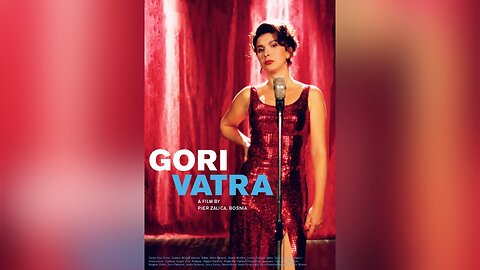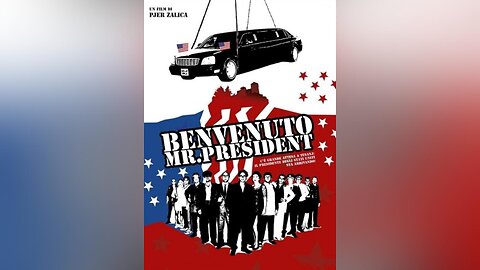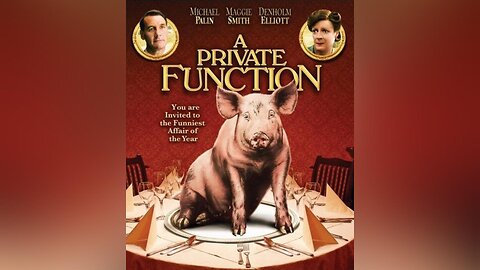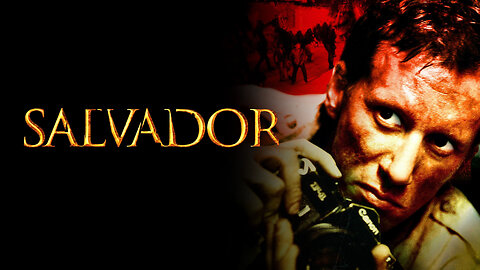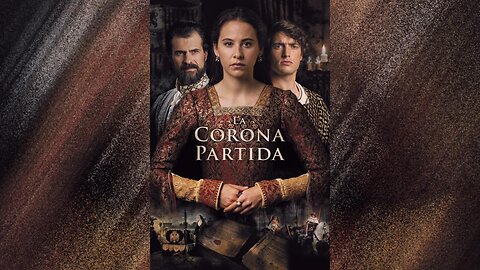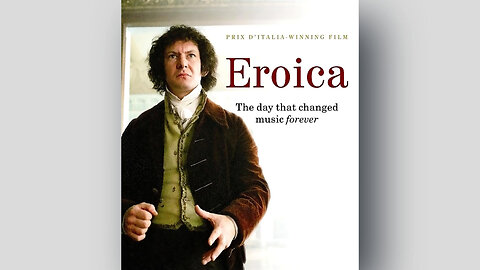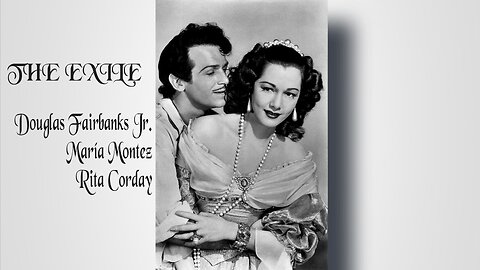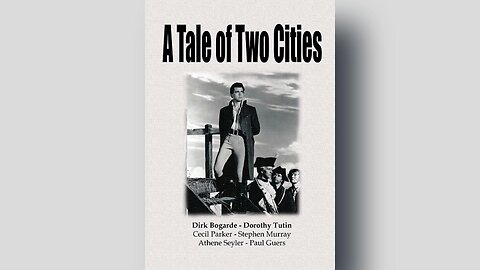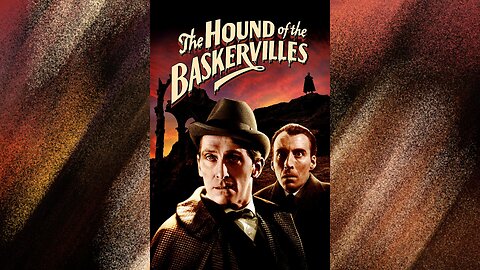
-
The Hound of the Baskervilles (Film 1959)
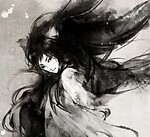 Adaneth - Cinema&TVThe Hound of the Baskervilles is a 1959 British Gothic mystery film directed by Terence Fisher and produced by Hammer Film Productions. It is based on the 1902 novel of the same title by Sir Arthur Conan Doyle. It stars Peter Cushing as Sherlock Holmes, Christopher Lee as Sir Henry Baskerville and André Morell as Doctor Watson. It is the first film adaptation of the novel to be filmed in colour. Filming took place on location at Chobham Common and Frensham Ponds, both in Surrey.196 views
Adaneth - Cinema&TVThe Hound of the Baskervilles is a 1959 British Gothic mystery film directed by Terence Fisher and produced by Hammer Film Productions. It is based on the 1902 novel of the same title by Sir Arthur Conan Doyle. It stars Peter Cushing as Sherlock Holmes, Christopher Lee as Sir Henry Baskerville and André Morell as Doctor Watson. It is the first film adaptation of the novel to be filmed in colour. Filming took place on location at Chobham Common and Frensham Ponds, both in Surrey.196 views -
Gori Vatra aka Fuse (Film 2003 - ENG SUB)
 Adaneth - Cinema&TVGori vatra (Bosnian: The Fire is Burning) is a Bosnian drama/comedy film directed by Pjer Žalica. Click on CC for English subtitles. Version with Italian Audio: https://rumble.com/v6zp6sw-benvenuto-mr.-presidentgori-vatra-film-2003-aud-ita.html The plot takes place in the small town of Tešanj in the Federation of Bosnia and Herzegovina, two years after the Bosnian War. The town is overridden by corruption, prostitution and organized crime. People of Tešanj live in peace, though the war scars are visible everywhere in town, as well as in people's souls. After the war, the population of Tešanj consists almost exclusively of Bosniaks. Ethnic Serbs now live in surrounding villages. It is announced that U.S. president Bill Clinton will pay a visit to the town. Western bureaucrats arrive to Tešanj to supervise the preparations for the visit. Everything in the town must be in order, including the faked brotherhood between Bosniaks and Serbs. Bosnian folk singer Emina Zečaj recorded music for the film. Cast & Characters: Enis Bešlagić - Faruk Bogdan Diklić - Zaim Saša Petrović - Husnija Izudin Bajrović - Mugdim Emir Hadžihafizbegović - Stanko Jasna Žalica - Hitka Senad Bašić - Velija Feđa Štukan - Adnan Hubert Kramar - Supervisor Admir Glamočak - Hamdo Aleksandar Seksan - Pic Almir Čehajić - Osman Alban Ukaj - Glavar90 views
Adaneth - Cinema&TVGori vatra (Bosnian: The Fire is Burning) is a Bosnian drama/comedy film directed by Pjer Žalica. Click on CC for English subtitles. Version with Italian Audio: https://rumble.com/v6zp6sw-benvenuto-mr.-presidentgori-vatra-film-2003-aud-ita.html The plot takes place in the small town of Tešanj in the Federation of Bosnia and Herzegovina, two years after the Bosnian War. The town is overridden by corruption, prostitution and organized crime. People of Tešanj live in peace, though the war scars are visible everywhere in town, as well as in people's souls. After the war, the population of Tešanj consists almost exclusively of Bosniaks. Ethnic Serbs now live in surrounding villages. It is announced that U.S. president Bill Clinton will pay a visit to the town. Western bureaucrats arrive to Tešanj to supervise the preparations for the visit. Everything in the town must be in order, including the faked brotherhood between Bosniaks and Serbs. Bosnian folk singer Emina Zečaj recorded music for the film. Cast & Characters: Enis Bešlagić - Faruk Bogdan Diklić - Zaim Saša Petrović - Husnija Izudin Bajrović - Mugdim Emir Hadžihafizbegović - Stanko Jasna Žalica - Hitka Senad Bašić - Velija Feđa Štukan - Adnan Hubert Kramar - Supervisor Admir Glamočak - Hamdo Aleksandar Seksan - Pic Almir Čehajić - Osman Alban Ukaj - Glavar90 views -
Benvenuto Mr. President/Gori Vatra (Film 2003-AUD ITA)
 Adaneth - Cinema&TVBenvenuto Mr. President (Gori vatra) è un film del 2003 di Pjer Žalica. Nel 1995 la piccola cittadina bosniaca di Tešanj viene sconvolta dalla notizia dell'imminente visita del presidente statunitense Bill Clinton. In pochi giorni gli abitanti dovranno far sparire odi etnici, genocidi e corruzione che dilagano nella comunità, fingendo pace e armonia per attrarre il presidente ed uscire da una situazione di indigenza. Molti gli spunti comici, il più noto avviene quando sulla bandiera USA, prodotta per addobbare il paese, vengono cucite delle stelle rosse. L'unico a non essere toccato dall'arrivo di Bill Clinton è un uomo che non si rassegna alla scomparsa del figlio, morto in guerra.42 views
Adaneth - Cinema&TVBenvenuto Mr. President (Gori vatra) è un film del 2003 di Pjer Žalica. Nel 1995 la piccola cittadina bosniaca di Tešanj viene sconvolta dalla notizia dell'imminente visita del presidente statunitense Bill Clinton. In pochi giorni gli abitanti dovranno far sparire odi etnici, genocidi e corruzione che dilagano nella comunità, fingendo pace e armonia per attrarre il presidente ed uscire da una situazione di indigenza. Molti gli spunti comici, il più noto avviene quando sulla bandiera USA, prodotta per addobbare il paese, vengono cucite delle stelle rosse. L'unico a non essere toccato dall'arrivo di Bill Clinton è un uomo che non si rassegna alla scomparsa del figlio, morto in guerra.42 views -
A Private Function (Film 1984 - MULTISUB)
 Adaneth - Cinema&TVA Private Function is a 1984 British comedy film starring Michael Palin and Maggie Smith. Audio in English with subtitles in English, German and Russian (Click on CC for subtitles). The film was predominantly filmed in Ilkley and Ben Rhydding in West Yorkshire. The film was also screened in the section of Un Certain Regard at the 1985 Cannes Film Festival. In a small town in Northern England in 1947, the citizens endure continuing food rationing. Some local businessmen want to hold a party to celebrate the royal Wedding of Princess Elizabeth to Prince Philip and illegally decide to raise a pig for that occasion. However, the pig is stolen by Gilbert Chilvers, who was encouraged to do so by his wife Joyce. Meanwhile, the local food inspector is determined to stop activities circumventing the food rationing. The film won three BAFTA Film Awards: Best Actress for Maggie Smith, Best Supporting Actress for Liz Smith, and Best Supporting Actor for Denholm Elliott. It was also nominated for Best Original Screenplay (Alan Bennett) and Best Film. Cast & Characters: Michael Palin as Gilbert Chilvers Maggie Smith as Joyce Chilvers Denholm Elliott as Dr. Swaby Richard Griffiths as Allardyce Tony Haygarth as Sutcliff John Normington as Lockwood Bill Paterson as Wormold Liz Smith as Mother Alison Steadman as Mrs Allardyce Jim Carter as Inspector Noble Pete Postlethwaite as Nuttal Reece Dinsdale as P.C. Penny Don Estelle as Barraclough, the butcher91 views
Adaneth - Cinema&TVA Private Function is a 1984 British comedy film starring Michael Palin and Maggie Smith. Audio in English with subtitles in English, German and Russian (Click on CC for subtitles). The film was predominantly filmed in Ilkley and Ben Rhydding in West Yorkshire. The film was also screened in the section of Un Certain Regard at the 1985 Cannes Film Festival. In a small town in Northern England in 1947, the citizens endure continuing food rationing. Some local businessmen want to hold a party to celebrate the royal Wedding of Princess Elizabeth to Prince Philip and illegally decide to raise a pig for that occasion. However, the pig is stolen by Gilbert Chilvers, who was encouraged to do so by his wife Joyce. Meanwhile, the local food inspector is determined to stop activities circumventing the food rationing. The film won three BAFTA Film Awards: Best Actress for Maggie Smith, Best Supporting Actress for Liz Smith, and Best Supporting Actor for Denholm Elliott. It was also nominated for Best Original Screenplay (Alan Bennett) and Best Film. Cast & Characters: Michael Palin as Gilbert Chilvers Maggie Smith as Joyce Chilvers Denholm Elliott as Dr. Swaby Richard Griffiths as Allardyce Tony Haygarth as Sutcliff John Normington as Lockwood Bill Paterson as Wormold Liz Smith as Mother Alison Steadman as Mrs Allardyce Jim Carter as Inspector Noble Pete Postlethwaite as Nuttal Reece Dinsdale as P.C. Penny Don Estelle as Barraclough, the butcher91 views -
Salvador (Film 1986 - ENG&RUS SUB)
 Adaneth - Cinema&TVSalvador is a 1986 war drama film co-written and directed by Oliver Stone. Audio in English with subtitles in English and Russian (click on CC for subtitles). It stars James Woods as Richard Boyle, alongside Jim Belushi, Michael Murphy and Elpidia Carrillo, with John Savage and Cynthia Gibb in supporting roles. Stone co-wrote the screenplay with Boyle. The film tells the story of an American journalist covering the Salvadoran Civil War who becomes entangled with both the FMLN and the right-wing military dictatorship while trying to rescue his girlfriend and her children. The film is highly sympathetic toward the left-wing revolutionaries and strongly critical of the US-supported military dictatorship, focusing on the murder of four American Catholic missionaries, including Jean Donovan, and the assassination of Archbishop Óscar Romero by death squads. The film was nominated for two Academy Awards: Best Actor in a Leading Role (Woods) and Best Writing, Screenplay Written Directly for the Screen (Stone and Boyle). Cast & Characters: James Woods as Richard Boyle Jim Belushi as Doctor Rock (based on Eric 'Dr. Rock' Isralow) Michael Murphy as Ambassador Thomas Kelly (based on Robert E. White) John Savage as John Cassady (based on John Hoagland) Elpidia Carrillo as María Cindy Gibb as Cathy Moore (based on Jean Donovan) Tony Plana as Major Maximiliano Casanova (based on Roberto D'Aubuisson) José Carlos Ruiz as Archbishop Oscar Romero94 views
Adaneth - Cinema&TVSalvador is a 1986 war drama film co-written and directed by Oliver Stone. Audio in English with subtitles in English and Russian (click on CC for subtitles). It stars James Woods as Richard Boyle, alongside Jim Belushi, Michael Murphy and Elpidia Carrillo, with John Savage and Cynthia Gibb in supporting roles. Stone co-wrote the screenplay with Boyle. The film tells the story of an American journalist covering the Salvadoran Civil War who becomes entangled with both the FMLN and the right-wing military dictatorship while trying to rescue his girlfriend and her children. The film is highly sympathetic toward the left-wing revolutionaries and strongly critical of the US-supported military dictatorship, focusing on the murder of four American Catholic missionaries, including Jean Donovan, and the assassination of Archbishop Óscar Romero by death squads. The film was nominated for two Academy Awards: Best Actor in a Leading Role (Woods) and Best Writing, Screenplay Written Directly for the Screen (Stone and Boyle). Cast & Characters: James Woods as Richard Boyle Jim Belushi as Doctor Rock (based on Eric 'Dr. Rock' Isralow) Michael Murphy as Ambassador Thomas Kelly (based on Robert E. White) John Savage as John Cassady (based on John Hoagland) Elpidia Carrillo as María Cindy Gibb as Cathy Moore (based on Jean Donovan) Tony Plana as Major Maximiliano Casanova (based on Roberto D'Aubuisson) José Carlos Ruiz as Archbishop Oscar Romero94 views -
La Corona Partida/The Broken Crown (Film 2016 - MULTISUB)
 Adaneth - Cinema&TVThe Broken Crown (Spanish: La corona partida) is a 2016 Spanish historical drama film directed by Jordi Frades. Audio in Spanish with subtitles in English, Italian and Spanish (click on CC for the subtitles). Set in early 16th century, the fiction focuses on the events after the death of Queen Isabella of Castile and the issuing of the corresponding will. Isabella's daughter Joanna finds herself in the middle of the political schemes of her father Ferdinand and her spouse Philip, son of Maximilian of Habsburg, with everyone in the Court having a vested interest in declaring her mad and unfit to rule. The Broken Crown, Jordi Frades' debut as feature film director, was written by José Luis Martín. The score was composed by Federico Jusid. Filming started in May 2015, shooting in locations such as the Castle of Guadamur, the Cathedral of Burgos, the Cathedral of Toledo, the Church of Santa María Magdalena in Torrelaguna and the Palace of Rincón in Madrid. The fiction serves as bridge in between the television series Isabel and Carlos, rey emperador. Cast & Characters: Rodolfo Sancho as Fernando Irene Escolar as Juana Raúl Mérida as Felipe Eusebio Poncela as Cardenal Cisneros Fernando Guillén Cuervo as Fuensalida José Coronado as Maximiliano de Habsburgo Jacobo Dicenta as Belmonte Úrsula Corberó as Margarita de Austria Ramon Madaula as Chacón Ainhoa Santamaría as Beatriz de Bobadilla Jordi Díaz as Cabrera Silvia Alonso as Germana de Foix120 views
Adaneth - Cinema&TVThe Broken Crown (Spanish: La corona partida) is a 2016 Spanish historical drama film directed by Jordi Frades. Audio in Spanish with subtitles in English, Italian and Spanish (click on CC for the subtitles). Set in early 16th century, the fiction focuses on the events after the death of Queen Isabella of Castile and the issuing of the corresponding will. Isabella's daughter Joanna finds herself in the middle of the political schemes of her father Ferdinand and her spouse Philip, son of Maximilian of Habsburg, with everyone in the Court having a vested interest in declaring her mad and unfit to rule. The Broken Crown, Jordi Frades' debut as feature film director, was written by José Luis Martín. The score was composed by Federico Jusid. Filming started in May 2015, shooting in locations such as the Castle of Guadamur, the Cathedral of Burgos, the Cathedral of Toledo, the Church of Santa María Magdalena in Torrelaguna and the Palace of Rincón in Madrid. The fiction serves as bridge in between the television series Isabel and Carlos, rey emperador. Cast & Characters: Rodolfo Sancho as Fernando Irene Escolar as Juana Raúl Mérida as Felipe Eusebio Poncela as Cardenal Cisneros Fernando Guillén Cuervo as Fuensalida José Coronado as Maximiliano de Habsburgo Jacobo Dicenta as Belmonte Úrsula Corberó as Margarita de Austria Ramon Madaula as Chacón Ainhoa Santamaría as Beatriz de Bobadilla Jordi Díaz as Cabrera Silvia Alonso as Germana de Foix120 views -
Eroica: The Day that Changed Music Forever (Film 2003-MULTISUB)
 Adaneth - Cinema&TVEroica is a BBC television film that dramatises the first performance of Beethoven's third symphony, the Eroica. Audio in English with subtitles in; English, Italian, German, French and Spanish (click on CC). The film was directed by Simon Cellan Jones, written by Nick Dear and starred Ian Hart, Tim Pigott-Smith, Anton Lesser and Frank Finlay. The music was played by Orchestre Révolutionnaire et Romantique and conducted by Sir John Eliot Gardiner. It won the Prix Italia for Performing Arts in 2004. The film is set in Vienna on 9 June 1804, the date of the private, first performance of Beethoven's third symphony, later to be known as the 'Eroica'. The performance, and most of the action in the film, takes place at the palace of one of Beethoven's patrons, Prince Franz Lobkowitz. Midway during the performance, Beethoven tries to get his lover, a widow named Josephine von Deym, to marry him, but she refuses because of the unfair laws regarding child custody – she is a member of the nobility, and cannot marry a commoner without losing custody of her children. Later, composer Joseph Haydn, now old and feeble, arrives just in time to hear the last movement of the symphony. As he leaves the performance, Haydn is asked his opinion of the symphony, which he describes as "quite new", and then utters his now-famous and prophetic comment, "From this day forward, everything [in music] is changed". The film ends on a grim note; as the performance of the Eroica ends, Beethoven looks at his audience and is momentarily unable to hear any natural sounds – an ominous sign of his approaching deafness. Soundtrack used: Eine Kleine Nachtmusik (excerpt) by Wolfgang Amadeus Mozart; Symphony No. 3 (Beethoven) by Ludwig van Beethoven. Cast & Characters: Ian Hart as Ludwig van Beethoven Tim Pigott-Smith as Count Dietrichstein Jack Davenport as Prince Franz Lobkowitz Fenella Woolgar as Princess Marie Lobkowitz Claire Skinner as Countess Josephine von Deym Lucy Akhurst as Countess Teresa von Brunswick (Josephine's sister) Frank Finlay as Joseph Haydn Leo Bill as Ferdinand Ries Peter Hanson as Wranitzky (leader of the orchestra in the film, and of Orchestre Révolutionnaire et Romantique) Robert Glenister as Gerhardt (one of the prince's servants) Anton Lesser as Sukowaty (Beethoven's copyist). Bonus Material: https://rumble.com/v6vvrt6-eroica-allegro-con-brio-bonus-material2003.html120 views 3 comments
Adaneth - Cinema&TVEroica is a BBC television film that dramatises the first performance of Beethoven's third symphony, the Eroica. Audio in English with subtitles in; English, Italian, German, French and Spanish (click on CC). The film was directed by Simon Cellan Jones, written by Nick Dear and starred Ian Hart, Tim Pigott-Smith, Anton Lesser and Frank Finlay. The music was played by Orchestre Révolutionnaire et Romantique and conducted by Sir John Eliot Gardiner. It won the Prix Italia for Performing Arts in 2004. The film is set in Vienna on 9 June 1804, the date of the private, first performance of Beethoven's third symphony, later to be known as the 'Eroica'. The performance, and most of the action in the film, takes place at the palace of one of Beethoven's patrons, Prince Franz Lobkowitz. Midway during the performance, Beethoven tries to get his lover, a widow named Josephine von Deym, to marry him, but she refuses because of the unfair laws regarding child custody – she is a member of the nobility, and cannot marry a commoner without losing custody of her children. Later, composer Joseph Haydn, now old and feeble, arrives just in time to hear the last movement of the symphony. As he leaves the performance, Haydn is asked his opinion of the symphony, which he describes as "quite new", and then utters his now-famous and prophetic comment, "From this day forward, everything [in music] is changed". The film ends on a grim note; as the performance of the Eroica ends, Beethoven looks at his audience and is momentarily unable to hear any natural sounds – an ominous sign of his approaching deafness. Soundtrack used: Eine Kleine Nachtmusik (excerpt) by Wolfgang Amadeus Mozart; Symphony No. 3 (Beethoven) by Ludwig van Beethoven. Cast & Characters: Ian Hart as Ludwig van Beethoven Tim Pigott-Smith as Count Dietrichstein Jack Davenport as Prince Franz Lobkowitz Fenella Woolgar as Princess Marie Lobkowitz Claire Skinner as Countess Josephine von Deym Lucy Akhurst as Countess Teresa von Brunswick (Josephine's sister) Frank Finlay as Joseph Haydn Leo Bill as Ferdinand Ries Peter Hanson as Wranitzky (leader of the orchestra in the film, and of Orchestre Révolutionnaire et Romantique) Robert Glenister as Gerhardt (one of the prince's servants) Anton Lesser as Sukowaty (Beethoven's copyist). Bonus Material: https://rumble.com/v6vvrt6-eroica-allegro-con-brio-bonus-material2003.html120 views 3 comments -
The Exile (Film 1947)
 Adaneth - Cinema&TVThe Exile is a 1947 American historical adventure romantic film directed by Max Ophüls, and produced, written by, and starring Douglas Fairbanks Jr. French actress Rita Corday (billed as "Paule Croset") played the romantic interest. In 1660, Charles Stuart (Douglas Fairbanks, Jr.), deposed as king of England by Oliver Cromwell and the Roundheads, is in exile in the Netherlands with a few loyalists, awaiting the right opportunity to return. Whilst bartering in a local marketplace, he meets Katie (Rita Corday), a Dutch farm owner and flower seller. The film is based on the 1926 novel His Majesty, the King: A Romantic Love Chase of the Seventeenth Century by Cosmo Hamilton. Cast & Characters: Douglas Fairbanks Jr. as Charles Stuart (Charles II of England) Maria Montez as Countess Anabella de Courteuil Rita Corday ("Paule Croset") as Katie Henry Daniell as Colonel Ingram Nigel Bruce as Sir Edward Hyde Robert Coote as Dick Pinner Otto Waldis as Jan Eldon Gorst as Seymour Milton A. Owen as Wilcox Colin Keith-Johnston as Captain Bristol Ben H. Wright as Milbanke Colin Kenny as Ross Peter Shaw as Higson Will Stanton as Tucket C.S. Ramsey-Hill [sic] as Cavalier Official Lumsden Hare as Roundhead General Lester Matthews as Robbins Thomas P. Dillon as Jasper William Trenk as Footman Fred Cavens as Coachman Alla Dunn as Marie Torben Meyer as Sea Captain Grayce Hampton as First Court Lady Mary Forbes as Second Court Lady Charles Stevens as Painter Harry Cording as Roundhead (uncredited)143 views
Adaneth - Cinema&TVThe Exile is a 1947 American historical adventure romantic film directed by Max Ophüls, and produced, written by, and starring Douglas Fairbanks Jr. French actress Rita Corday (billed as "Paule Croset") played the romantic interest. In 1660, Charles Stuart (Douglas Fairbanks, Jr.), deposed as king of England by Oliver Cromwell and the Roundheads, is in exile in the Netherlands with a few loyalists, awaiting the right opportunity to return. Whilst bartering in a local marketplace, he meets Katie (Rita Corday), a Dutch farm owner and flower seller. The film is based on the 1926 novel His Majesty, the King: A Romantic Love Chase of the Seventeenth Century by Cosmo Hamilton. Cast & Characters: Douglas Fairbanks Jr. as Charles Stuart (Charles II of England) Maria Montez as Countess Anabella de Courteuil Rita Corday ("Paule Croset") as Katie Henry Daniell as Colonel Ingram Nigel Bruce as Sir Edward Hyde Robert Coote as Dick Pinner Otto Waldis as Jan Eldon Gorst as Seymour Milton A. Owen as Wilcox Colin Keith-Johnston as Captain Bristol Ben H. Wright as Milbanke Colin Kenny as Ross Peter Shaw as Higson Will Stanton as Tucket C.S. Ramsey-Hill [sic] as Cavalier Official Lumsden Hare as Roundhead General Lester Matthews as Robbins Thomas P. Dillon as Jasper William Trenk as Footman Fred Cavens as Coachman Alla Dunn as Marie Torben Meyer as Sea Captain Grayce Hampton as First Court Lady Mary Forbes as Second Court Lady Charles Stevens as Painter Harry Cording as Roundhead (uncredited)143 views -
A Tale Of Two Cities (Film 1958)
 Adaneth - Cinema&TVA Tale of Two Cities is a 1958 British film directed by Ralph Thomas and starring Dirk Bogarde and Dorothy Tutin. It is a period drama based on parts of Charles Dickens' novel A Tale of Two Cities (1859). Click on CC for optional English subtitles. Filming started 3 July 1957 at Bourges in France for four weeks of location work. The film was shot in the Loire Valley in France, because it was the only place without telegraph poles. Several thousand American soldiers posted nearby in Orléans were used as extras. Shooting took six weeks. The film was the most expensive British production of its year Cast & Characters: Dirk Bogarde as Sydney Carton Dorothy Tutin as Lucie Manette Paul Guers as Charles Darnay (Voice dubbed by Tim Turner – uncredited) Marie Versini as Marie Gabelle Ian Bannen as Gabelle Alfie Bass as Jerry Cruncher Cecil Parker as Jarvis Lorry Stephen Murray as Dr. Manette Athene Seyler as Miss Pross Ernest Clark as Stryver Rosalie Crutchley as Madame Defarge Freda Jackson as the Vengeance Duncan Lamont as Ernest Defarge Leo McKern as Attorney General-Old Bailey Donald Pleasence as John Barsad Christopher Lee as Marquis St. Evremonde Sam Kydd as Coachman199 views
Adaneth - Cinema&TVA Tale of Two Cities is a 1958 British film directed by Ralph Thomas and starring Dirk Bogarde and Dorothy Tutin. It is a period drama based on parts of Charles Dickens' novel A Tale of Two Cities (1859). Click on CC for optional English subtitles. Filming started 3 July 1957 at Bourges in France for four weeks of location work. The film was shot in the Loire Valley in France, because it was the only place without telegraph poles. Several thousand American soldiers posted nearby in Orléans were used as extras. Shooting took six weeks. The film was the most expensive British production of its year Cast & Characters: Dirk Bogarde as Sydney Carton Dorothy Tutin as Lucie Manette Paul Guers as Charles Darnay (Voice dubbed by Tim Turner – uncredited) Marie Versini as Marie Gabelle Ian Bannen as Gabelle Alfie Bass as Jerry Cruncher Cecil Parker as Jarvis Lorry Stephen Murray as Dr. Manette Athene Seyler as Miss Pross Ernest Clark as Stryver Rosalie Crutchley as Madame Defarge Freda Jackson as the Vengeance Duncan Lamont as Ernest Defarge Leo McKern as Attorney General-Old Bailey Donald Pleasence as John Barsad Christopher Lee as Marquis St. Evremonde Sam Kydd as Coachman199 views
